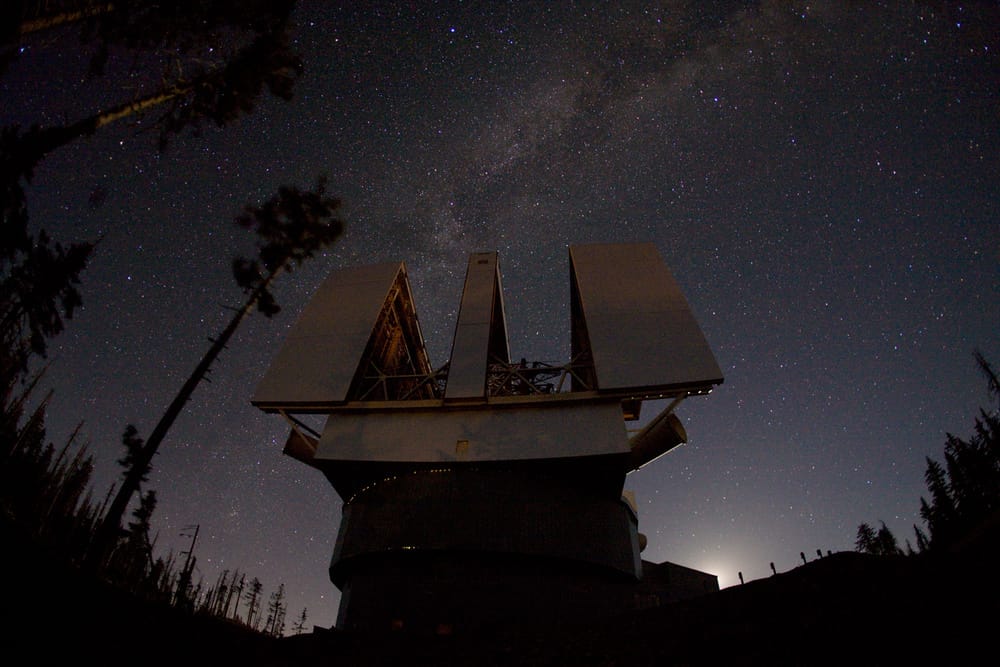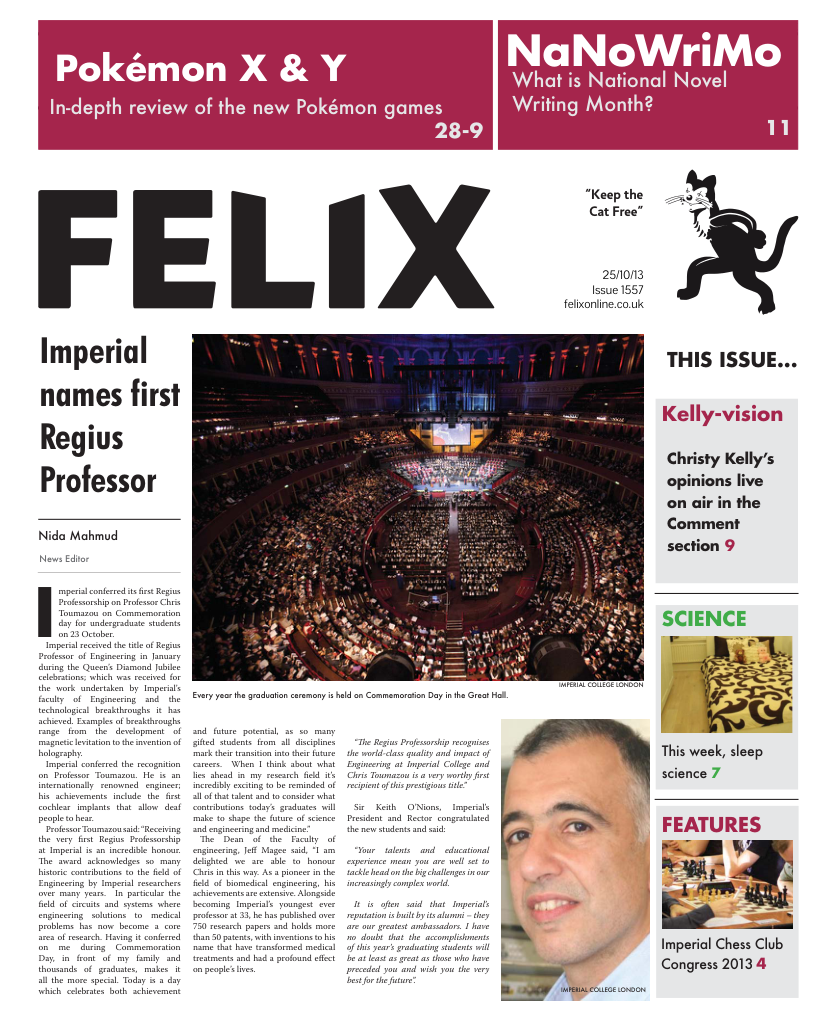Most distant gravitational lens yet discovered
The most distant example of a gravitational lens has been discovered by scientists in Germany.

The most distant example of a gravitational lens has been discovered by scientists in Germany. The large galaxy, 9.4 billion light years away from us, focuses light towards the earth, like a sort of cosmic telescope, enabling us to detect another smaller, more distant galaxy that would normally be too dim for us to pick up. But the unexpected discovery of this smaller galaxy has puzzled the astronomers behind the research, at the Max Planck Institute for Astronomy in Heidelberg.
Gravitational lenses are a phenomenon predicted by Albert Einstein’s general theory of relativity, which describes the way massive objects change the shape of space and time. When diffuse light from a far away galaxy passes close to a large object, this curved spacetime causes its path to be bent, or lensed, and focused onto a narrow path. Measurements of the extent of this lensing can be used to estimate the object’s mass, as the heavier it is, the greater the effect it will have on nearby spacetime.
Using data from the Large Binocular Telescope in Arizona, and the Hubble space telescope, the astronomers at the Max Planck Institute have broken a 30 year record by discovering a gravitational lens more than a billion light years further away than the most distant one previously known. Through careful measurements, they have estimated its mass at 8 x 1010 times the mass of our sun. This is an important finding, as it enables them to verify the more usual techniques used to weigh very distant galaxies, which are based on extrapolations from nearer examples that we know more about.
The images from Hubble showed light from an even more distant galaxy forming a full circle, called an Einstein ring, around the nearer one that caused the lensing. This is a sign of very precise alignment between the two galaxies and the earth, which is very unusual. The more distant dwarf galaxy, just a few tens of millions of years old, and around 108 times the mass of the sun, is a type that’s thought to be very rare. Such a perfect example of gravitational lensing involving one should, therefore, be extremely rare. Yet this is the second discovery in recent years. It is as yet unknown as to whether this is due to chance, or if these galaxies are actually more common than our current theories would suggest. According to Arjen van de Wel, head of the group, these surprising observations “have the potential to start a new chapter in our description of galaxy evolution in the early universe.” arXiv: 1309.2826








